Opinion
While You Watched the War: Who Profited, Who Paid, and What We Lost

Image courtesy: Getty
Anusha Paul
Published on May 16, 2025, 06:15 PM | 7 min read
On April 22, 2025, a devastating terrorist attack in Pahalgam claimed 26 innocent lives, throwing the Kashmir region into further crisis and indeed the nation—into mourning. Yet, what followed was not a collective moment of national grief. Instead, the tragedy was rapidly commodified, transformed into a political tool, a media spectacle, and a military operation designed to further the agenda of the powerful rather than seek true justice for the victims.
In response to the attack, the Indian government launched Operation Sindoor, a cross-border strike presented as a justified retaliation. A mere week later, Operation Keller unfolded in Kashmir’s Shopian district, leading to the deaths of three alleged militants. But the operations quickly evolved into a political and media show far removed from the suffering of ordinary Kashmiris.
National television channels turned into war zones. Anchors, once journalists, donned military gear and spewed militaristic jargon, transforming news into theatrical performances. Zee News and News18 were among the major networks broadcasting sensationalised reports, misidentifying an Indian citizen, Qari Mohammad Iqbal, as a Pakistani terrorist. His family, already devastated by his death, found out through these erroneous reports. Even after the misinformation was corrected, no apology was issued, and the damage was done. This was not journalism—it was media exploitation for ratings.
The real tragedy, however, was the collective abandonment of factual reporting. Media outlets that chose to stick to the truth—such as The Wire—were throttled and suppressed. The government’s clampdown on independent reporting extended to international news agencie, which were silenced for their independent voices. Independent journalists like Mohammad Zubair were targeted for challenging the official narrative, an unfortunate sign of the growing intolerance for dissent in the country. What should have been a time for reflection and truth-telling became a stage for propaganda.

(Image courtesy: BBC/Google)
But the spectacle didn’t stop at the media. Political leaders, too, scrambled to capitalize on the war rhetoric. The Bharatiya Janata Party (BJP) and Rashtriya Swayamsevak Sangh ( RSS), ever eager to stoke nationalist sentiments, lauded the military operations as decisive strikes against terror. Even the opposition, once known for progressive values, fell in line. Leaders from states like MK Stalin (Tamil Nadu), Siddaramaiah (Karnataka), Chandrababu Naidu (Andhra Pradesh), and even Akhilesh Yadav (Samajwadi Party) joined the chorus, offering praise for the strikes without demanding accountability. Mayawati from the Bahujan Samaj Party (BSP) and Congress too issued muted statements of support, reinforcing the prevailing jingoistic tone of the moment. But where was the call for justice for the victims? Where was the demand for transparency in military operations?
The political response was uniform, with leaders across the spectrum more interested in scoring points in the game of ultra-nationalism than seeking genuine resolution to the region’s ongoing crises. The narrative of strength and unity drowned out the voices of those who sought peace, accountability, and a fair investigation into the Pahalgam massacre.

(Left Front in West Bengal organised a massive protest against the war hysteria.)
However, not everyone was swept up in the fervor. In West Bengal, the CPI(M) took to the streets to protest the war-mongering rhetoric that pervaded national discourse. Thousands marched to reject the idea of conflict as a political tool, calling instead for diplomacy and peace. The Students Federation of India (SFI) acted decisively, setting up help desks to evacuate students from the bordering states, prioritizing their safety amidst the growing tensions. Meanwhile, workers and farmers, who had been preparing for a nationwide strike to protest the government’s economic policies, shifted focus toward demanding a ceasefire and denouncing the sensationalization of war.
While political leaders and media outlets focused on rallying the nation behind the military, a far more sinister agenda unfolded behind closed doors. Just hours after the operation was launched, Reliance Industries—led by billionaire Mukesh Ambani—sought to trademark “Operation Sindoor.” This was not for national security or any strategic interest, but to secure the term for use in films, web series, and digital content. Reliance later justified that it was a mistake made by a junior employee, but the fact remains that the tragedy of war had been reduced to an intellectual property to be monetised. This incident exposed the grotesque overlap between ultra-nationalism, corporate profiteering, and media spectacle. War, as it turns out, is not just a political tool—it is a business.
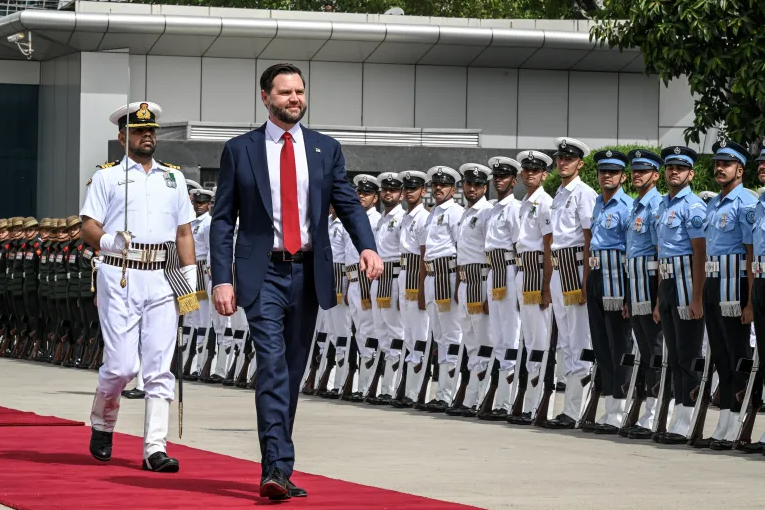
(Image courtesy: Kenny Holston/Reuters)
Meanwhile, in the background, international negotiations were taking place that would have long-lasting impacts on India’s economy. Free Trade Agreements with the US, UK, and EU were quietly being finalized. These deals, framed as progress, were set to flood India’s markets with foreign goods, undermining local industries like textiles, agriculture, and manufacturing. The corporate agenda continued to move forward under the cover of nationalist rhetoric, leaving ordinary workers and farmers to bear the consequences.
Similarly, the government’s economic overhaul will continue unabated. In a deliberate move, the new Labour Codes will be pushed through, effectively weakening workers' rights and empowering corporations. Under the guise of “reforms,” these codes will allow companies to lay off workers with fewer restrictions, weaken union power, and undermine collective bargaining rights.
Farmers, already under immense pressure from the government’s earlier farm laws, found themselves targeted once more. The government’s plans to open the agricultural sector to foreign agribusinesses—supported by multinational giants—left Indian farmers at the mercy of international market forces. These deals, finalized during the visit of US Vice President JD Vance, would benefit foreign agribusinesses while crippling India’s farmers. Protests were already in motion in Punjab and Haryana, with farmers burning effigies of Vance and shouting “Vance Go Back!”
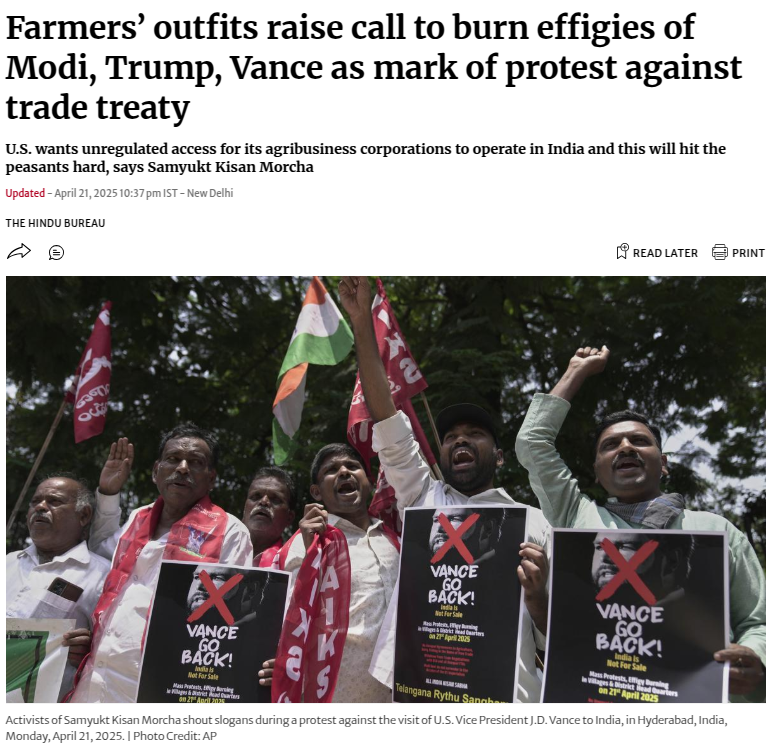
(Image: The Hindu's report on farmers agitation)
The nuclear energy sector, too, became another battleground. The government’s Rs 20,000 crore Nuclear Energy Mission—intended to boost India’s energy capacity—was a façade for the real agenda: the privatization of national infrastructure. Corporate giants like Reliance, Adani, and Vedanta were eyeing control of India’s nuclear energy assets. These companies were eager to profit from the country’s energy needs, a move that would expose the nation’s energy infrastructure to foreign control. And behind the public discourse of “development,” the real beneficiaries were not the people but the corporations eager to seize control of India’s resources.
As the Sen-sex and Nifty indices showed signs of volatility, the market largely remained unaffected by the military actions. The markets had already factored in the strikes and their impact, revealing that for the powerful, war is just another opportunity to profit. The real battle was not on the borders but within India’s economic and social landscape, where the working class, farmers, and public sectors were being systematically stripped of their rights and livelihoods. While the nation watched military operations unfold on television, critical structural changes were being implemented quietly—changes that would benefit corporations and erode public welfare.
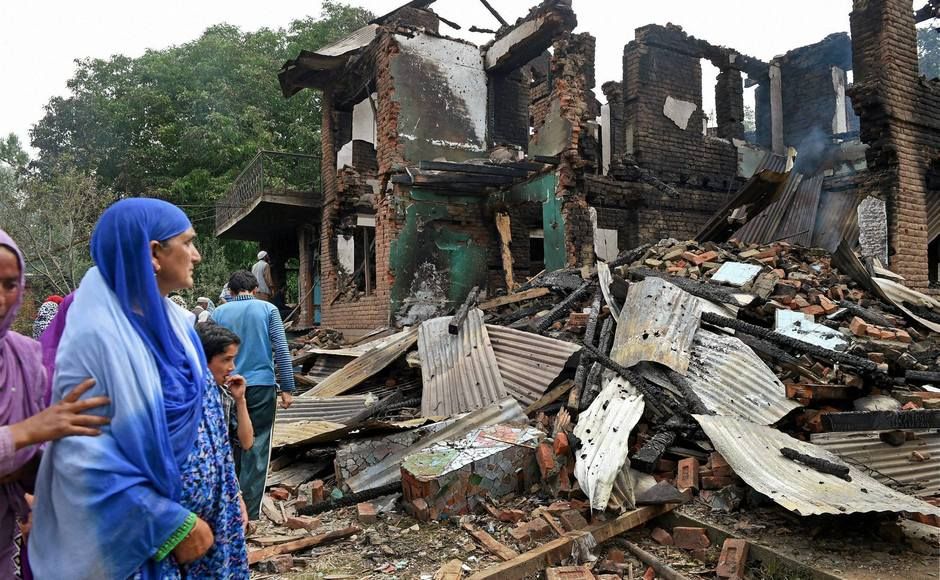
(Image courtesy:PTI Files/S.Irfan - PTI7_4_2017_000196B)
The Pahalgam terror attack should have been a unifying moment for the nation. It should have sparked a conversation about the need for justice, peace, security and state-hood for the people of Kashmir. Instead, it was hijacked. It was used to justify military operations, to promote nationalist rhetoric, and to further an agenda of privatization, neoliberal reforms, and corporate dominance. The victims of that attack were not given the dignity of their suffering. Their stories were overshadowed by the sensationalization of military triumphs.
In the end, the real question we must ask is: What were we doing during the war? While missiles flew and flags waved, the real casualties were the farmers, workers, and common people who were left behind, abandoned by the very government that claimed to represent them. Ultra-Nationalism, as it has been co-opted in recent years, is not about justice or unity. It has become a tool for suppressing dissent, for consolidating power, and for enriching the already powerful. The war is not being fought at the borders; it is being fought on the ground, against the people of India—its workers, its farmers, its students.
This is the real battle. And we are all caught in it.




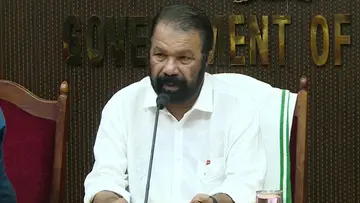
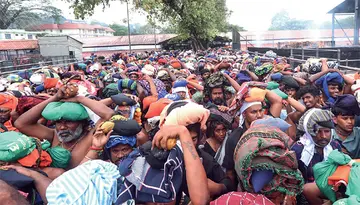




0 comments